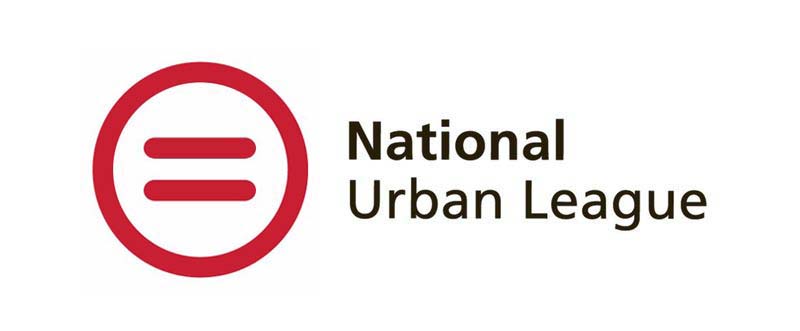How long it takes to get a job depends on your level of experience, your industry, the state of the job market, and other factors.
Anxious job seekers might be wondering how long their current search for a new role may last.
To get some answers, we reviewed data from the Bureau of Labor Statistics on how long it takes to get a job in 2023 (vs. other time periods) across demographics, occupations, and industries.
In this article, we cover:
- How Long Does It Take to Get a Job?
- How Long Does It Take to Get a Job Now, Compared to Previous Years?
- Duration of Job Search by Age
- Duration of Job Search by Gender and Race
- Duration of Job Search by Employment Situation
- How Long It Takes to Get a Job by Occupation and Industry
- How to Speed Up Your Job Search
How Long Does It Take to Get a Job?
According to the Bureau of Labor Statistics, the median amount of time that unemployed people had been without a job was 8.4 weeks in April 2023. BLS seasonally adjusted this number.
The average amount of time that people had been unemployed in April 2023 was 20.9 weeks. The average is much higher than the median because a small number of people have been unemployed for a very long time.
>>MORE: Top Companies Hiring Right Now on Forage
How Long Does It Take to Get a Job Now, Compared to Previous Years?
The median amount of time people have been unemployed hasn’t changed much in the past year. Throughout 2022 and into the first quarter of 2023, the seasonally adjusted number hovered between 8.4 and nine weeks.
In 2020 and 2021, driven by job market volatility during the pandemic, the median unemployment duration fluctuated. It reached a peak of 19.7 weeks in the second quarter of 2021.
The state of the economy affects how long it takes to get a job. According to the April 2023 jobs report, unemployment was 3.4%, which is very low.
Duration of Job Search by Age
The older you are, the longer it may take you to get a job. According to April 2023 data from the Bureau of Labor Statistics, the median amount of time that unemployed people between 20 and 24 years old had been without a job (9.4 weeks) was the lowest compared to other age groups. BLS did not seasonally adjust this number.
The median amount of time people had been unemployed as of April 2023 was the longest for people between 55 and 64 years old (16.1 weeks). The length of unemployment trended upward for people in age groups between 24 and 55. However, the median amount of time that people age 65 and older had been unemployed (12.7 weeks) was lower than the median for the 55 to 64 age group.
Several factors can lead older job seekers to have more difficulty finding a job, says Laura Mills, head of early career insights at Forage.
For example, large corporations generally have fewer openings for higher-ranking roles that people later in their careers may be seeking. In addition, older job seekers may be targeting roles with greater flexibility and may have more non-negotiable criteria for a role than younger job seekers.
Unconscious bias and age discrimination may hinder older applicants in their searches. Some hiring managers may unfairly assume older workers are less agile and less willing to adapt to change, Mills adds.
Duration of Job Search by Gender and Race
In April 2023, the median amount of time that women had been unemployed (10 weeks) was slightly less than the median amount of time that men had been unemployed (11.1 weeks).
During the same timeframe, median unemployment durations were longer for Black people (13.5 weeks) and Asian people (13.3 weeks) than they were for Hispanic or Latino people (10.4 weeks) and white people (9.8 weeks).
Systemic inequities likely influence these disparities.
“Unfortunately, recruiters and hiring managers aren’t properly trained to identify how they’re embedding their own personal biases and stereotypes into the way they work, review resumes, interview candidates, write feedback, and extend offers,” says Daniela Herrera, an equity, diversity and inclusion professional and recruitment expert.
She cites that resumes with non-white-sounding names receive fewer callbacks than resumes with white-sounding names. This happens even when the credentials, skills, and experiences are the same.
Herrera recommends that talent acquisition teams review their recruitment process to identify points where potential inequities may be taking place.
“It’s crucial to immediately embed accessible and inclusive practices into the actual systems, policies, and processes to help minimize those instances as much as possible,” Herrera says.
Duration of Job Search by Employment Situation
People can be without a job for different reasons. Some may be between temporary positions. Others may have left their previous job voluntarily, while others may have been laid off.
In April 2023, over half of unemployed people who were temporarily laid off had been unemployed for less than five weeks. In contrast, 31.2% of people who were unemployed after they completed temporary jobs had been unemployed for 27 weeks or more.
A greater percentage of people who lost their job had been unemployed for 15 weeks or more than people who left their jobs voluntarily.
Re-entrants and new entrants to the job market had similar durations of unemployment. Close to half had been unemployed for 15 weeks or more.
How Long It Takes to Get a Job by Occupation and Industry
In April 2023, the occupations where people had been unemployed for the least amount of time were sales and administrative occupations. The median unemployment duration for these occupations was 9.8 weeks.
People in professional occupations or installation, maintenance, and repair occupations who were unemployed in April 2023 had been unemployed for median durations of 12.3 weeks and 12.5 weeks, the longest of the occupational groups.
The industries where the median length of unemployment was lowest were durable goods, manufacturing, and nondurable goods. It was highest for the public administration, other services, and agriculture and related services industries.
>>MORE: The Most In-Demand Jobs in an Uncertain Economy
How to Speed Up Your Job Search
The job search can be grueling. Between preparing applications, networking, and interviewing, there are a lot of demands on your time. Meanwhile, it can be hard to know if you’re making progress when weeks go by without an offer.
According to Deb Harrison, a consultant and executive coach, the following factors could prolong your job search:
- A lack of clarity in your career goals
- Neglecting your professional network
- Searching for a job in a highly competitive industry
- Rushed applications
- Inadequate preparation for interviews
If you get rejected from a position, ask for feedback from your interviewers, Harrison advises.
Candidates should also consider what their ideal role looks like. They should avoid spending time applying to positions that don’t meet their criteria, advises Travis Lindemoen, founder of Enjoy Mondays.
Remember that there are factors out of your control that influence how long your job search takes.
“Employers have too many qualified candidates vying for limited positions, requiring additional meetings and interviews before selecting anyone who is deemed best-suited for the position,” Lindemoen says.
To speed your search process, build skills through courses and workshops and network to discover new leads. Also, consider pursuing an internship in lieu of a full-time position. Get more tips in Forage’s ultimate guide to landing a job.
Image credit: Depositphotos.com

